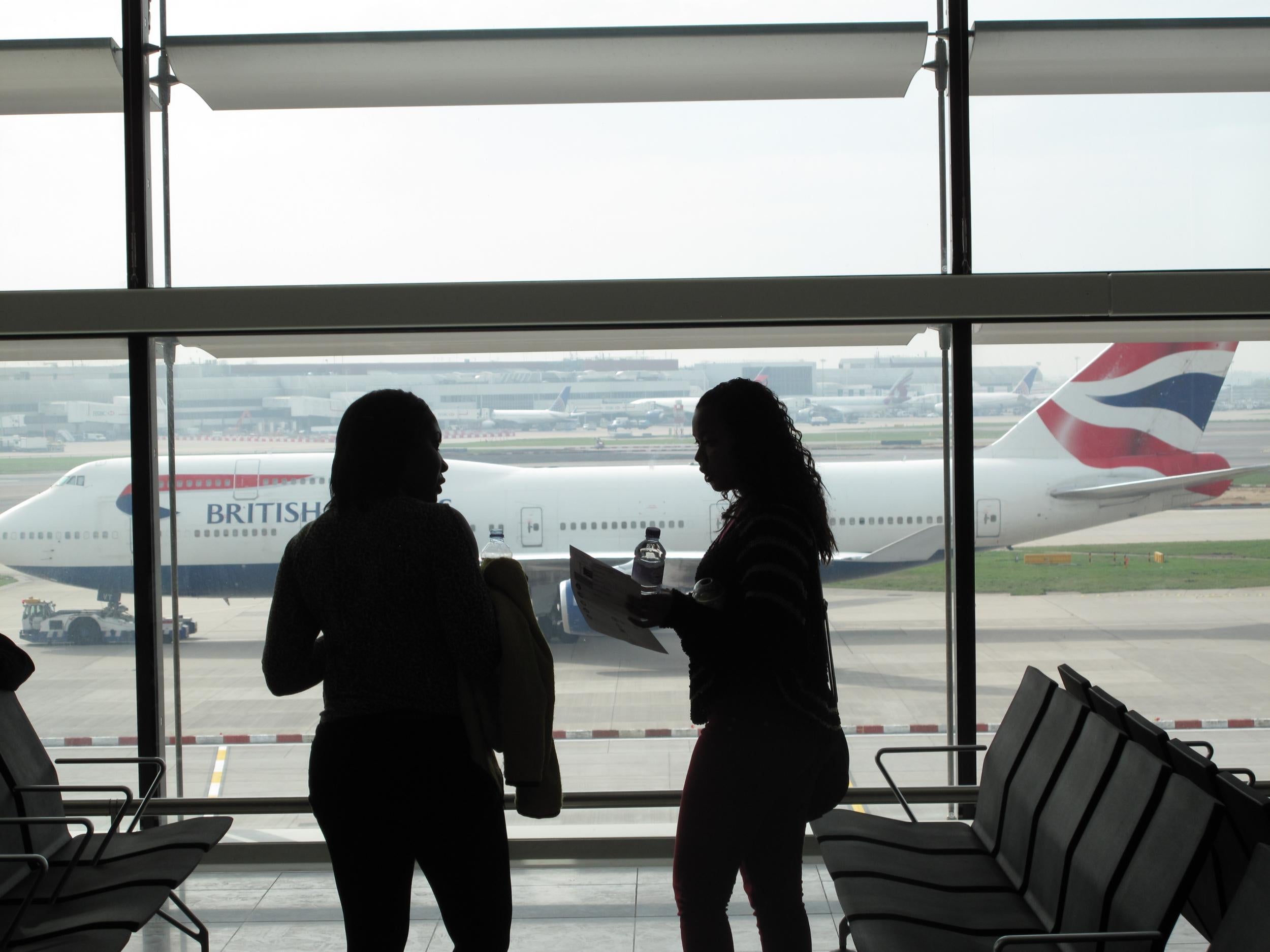Bank holiday travel chaos sees dozens of flights cancelled and trains delayed
Passengers at Heathrow and Stansted suffer another day of disruption, while a Second World War bomb delays rail travellers

Your support helps us to tell the story
From reproductive rights to climate change to Big Tech, The Independent is on the ground when the story is developing. Whether it's investigating the financials of Elon Musk's pro-Trump PAC or producing our latest documentary, 'The A Word', which shines a light on the American women fighting for reproductive rights, we know how important it is to parse out the facts from the messaging.
At such a critical moment in US history, we need reporters on the ground. Your donation allows us to keep sending journalists to speak to both sides of the story.
The Independent is trusted by Americans across the entire political spectrum. And unlike many other quality news outlets, we choose not to lock Americans out of our reporting and analysis with paywalls. We believe quality journalism should be available to everyone, paid for by those who can afford it.
Your support makes all the difference.The end of the long weekend signalled long delays for thousands of travellers attempting to return home.
More than 30 flights to and from Heathrow were cancelled because of weather issues. Low visibility reduced the arrivals rate, with Eurocontrol warning: “High delays all morning & early afternoon”.
As delays built up, cancellations increased. Most were British Airways short-haul services, but Aer Lingus, Eurowings and SAS also cancelled flights.
A spokesperson for British Airways said: “On one of the busiest weekends of the year, our teams have been working tirelessly to get tens of thousands of customers away on their half-term breaks, despite being challenged by bad weather and thunderstorms across Europe.
“We have done everything we can to minimise the disruption, and we have rebooked or refunded a handful of customers whose flights were cancelled.”
Passengers using Stansted Airport faced problems for a second day. Around 100 flights were cancelled on Sunday because of damage to the fuelling system, and the disruption continued into Monday.
Ryanair, the biggest airline at the Essex airport, cancelled further flights to Hamburg and Jerez in Spain, as well as their return legs.
Jet2 passengers on flights from Larnaca in Cyprus and the Greek island of Rhodes both experienced 19-hour delays returning to Stansted, with Fuerteventura and Paphos flights 17 hours behind schedule.
Thomas Cook Airlines flights from Antalya and Dalaman in Turkey were around 20 hours late arriving at Stansted.
It follows a weekend when Thomas Cook passengers flying from Gatwick to Dalaman in Turkey, Hurghada in Egypt and Bourgas in Bulgaria experienced delays of around 24 hours.
At Luton Airport, almost all easyJet flights in the afternoon and evening were late.
Further disruption lies ahead, with two air-traffic control strikes in Europe anticipated in the next 10 days.
On Wednesday 30 May, Greek controllers are expected to walk out.
More seriously, Italian air-traffic controllers have called a “day of action” for Friday 8 June. Although the action lasts only from 1pm to 5pm local time, it is likely to disrupt hundreds of flights on the busiest day of the air-travel week. A strike earlier in May led to more than 100 flights to and from the UK being cancelled.
Thousands of UK rail passengers faced unexpected problems in addition to the rail routes closed throughout the weekend due to pre-planned engineering work.
Sections of the West Coast main line between London, Birmingham, northwest England and Scotland were off-limits, with trains running on alternative routes.
But the discovery of an unexploded Second World War bomb close to the tracks between Milton Keynes Central and Rugby caused even more disruption to Virgin Trains and London Northwestern services.
Travellers were warned that some services might be diverted via the slower Northampton line.
The one-hour journey from Stoke-on-Trent to Milton Keynes Central took some trains twice as long.
A points failure outside Manchester Piccadilly station added to the mayhem.
Many trains linking Manchester with Sheffield, Leeds and London Euston were cancelled or heavily delayed.
Airline passengers using the rail link to Manchester Airport were forced to use alternative transport: no trains ran on the line from Manchester Piccadilly for 90 minutes from noon, and many services after that were either cancelled or delayed.
In Scotland, signalling problems between Glasgow and Paisley caused serious disruption, while the track to Lanark was temporarily closed for inspection.
Join our commenting forum
Join thought-provoking conversations, follow other Independent readers and see their replies
Comments